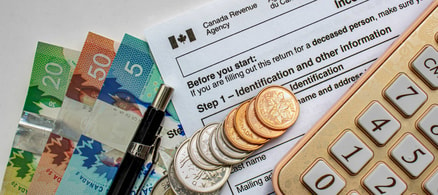A handy estate planning tool
An estate freeze is much what it sounds like: an option for business owners to legally “freeze” the value of their business at what it’s currently worth.
The advantage is that owners will be able to anticipate and set aside the amount of money their estate will have to pay in taxes one day.
In an estate freeze, the owner in question will exchange their common shares for frozen ones. The common shares can then be sold at a nominal price to other family members or placed in a trust.
In the event you are survived by a spouse, the real estate freeze will be honoured. The spouse will be exempt from paying the taxes owed on the business until the business is sold or the spouse dies.
The next generation could enact their own estate freeze as well, once they’re ready to pass on the reins.
“For the business owner, the largest benefit would be knowing exactly what value is going to be in your estate,” says Kriss Rossignoli, a private tax manager at Cardinal Wealth in Toronto.
Importantly, carrying out an estate freeze doesn’t mean the owner has to give up control of their business — they’ll still be able to manage the company and will maintain voting privileges.
Maximize Your Tax Refund with TurboTax Canada!
Simplify tax season with this user-friendly software. Get step-by-step guidance, maximize deductions, and file with confidence. Trusted by millions, TurboTax Canada ensures accuracy and peace of mind. Start your taxes today and get the refund you deserve
Get the tax refund you deserveHow it works
Say a business is valued at $2 million today, but is expected to grow to $8 million over the next decade. The business owner knows she’ll want to be retired before then and would like to have her estate plan organized as well.
Her accountant may suggest an estate freeze, allowing her to lock in the value of her business at $2 million. When she dies, regardless of what the business is worth at the time, her estate will only owe taxes on that $2 million, which she’s already tucked away in an account for her executor.
Eventually, the heirs to her company will be responsible for paying the taxes on the business on any growth from that initial $2 million.
“Basically, you're putting the future taxes in the hands of someone else,” says Caroline Rhéaume, a tax lawyer and trust and estate practitioner (TEP), and president of Fortunae International in Montreal.
When should you use it?
This is a tax planning tool that comes in handy when business owners are approaching retirement.
Deciding when you should carry out a freeze will take some mental math: you need to make sure there’s enough value in the company, along with whatever other investments you have, to financially sustain you through retirement.
“You can basically plan your estate and how much taxes you’ll have to pay upon death, at least on those shares,” Rhéaume says. You could also buy a life insurance policy that pays out the amount that will be owed in taxes on your business.
Grow Your Savings Effortlessly with Moka
Automate your savings with every purchase and watch your money multiply. Moka rounds up your transactions and invests the spare change. Start building wealth effortlessly today. Join thousands of Canadians embracing financial freedom with Moka
Sign up nowHow to know if an estate freeze is for you
Rissignoli says anyone considering whether an estate freeze might work for them should touch base with their lawyer and tax accountant first. If you’re at a place in your life where you’re starting to think about retirement and succession, it may be the time to raise the issue.
While it may sound like a silver bullet, carrying out an estate freeze can be a complex endeavour. And everyone has to be on the same page to make it work.
“When you want to integrate family members in your corporate structure or … when you're thinking of drafting your will, that just might be a moment to say, ‘Okay, let's see if it would make sense doing an estate freeze today and start to plan insurance and things like that,’” says Rhéaume.
Another important factor to consider is that the Canada Revenue Agency (CRA) may challenge you if they don’t believe your valuation reflects your company’s real fair market value.
“You don't necessarily have to go to a business valuator, [but] it's always good to have something on file to make sure that, if there is a challenge, you can show how you came up with the value,” says Rhéaume.
And if the CRA believes you’re trying deliberately to undervalue your company to push the tax burden over to someone else, they won’t allow it.
“The situation has to be reviewed carefully,” says Rhéaume. “You need someone who can really review everything and make sure you avoid any mistakes.”
Sponsored
Trade Smarter, Today
With CIBC Investor's Edge, kick-start your portfolio with 100 free trades and up to $4,500 cash back.







